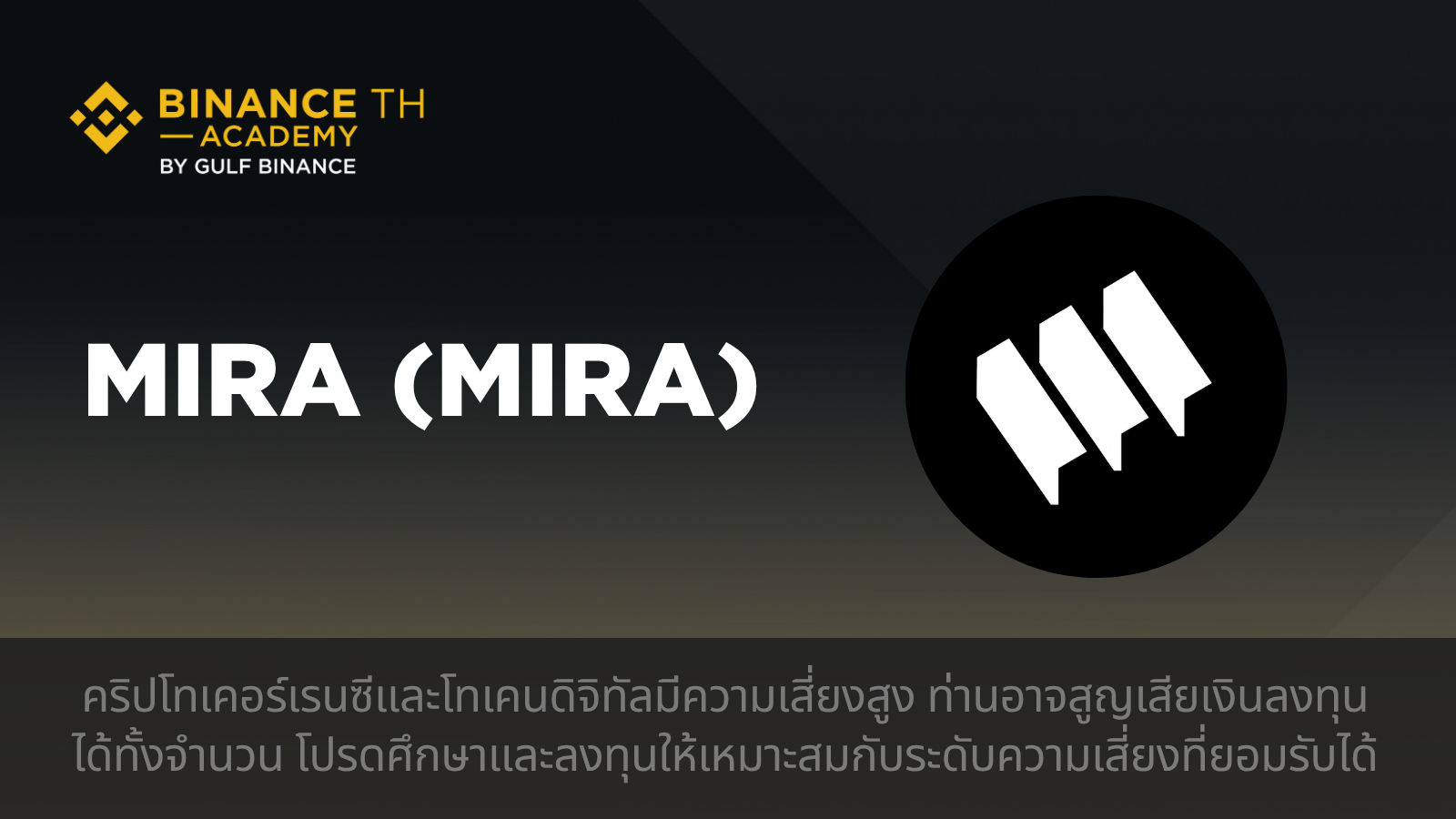What is Mira (MIRA)?

Currently, most AI systems still rely on human oversight because their outputs may contain errors or biases.
Mira is a decentralized verification network that takes a different approach. It converts AI outputs into verifiable claims and distributes the verification across a network of independent participants. Using key mechanisms such as Binarization, Distributed Verification, and Proof of Verification, it helps improve the reliability and accuracy of AI systems.
Mira also provides a Marketplace for customizable AI Workflows that developers can access via SDK or API, making AI integration into various systems easier and significantly reducing development time.
How Mira Works
Mira verifies AI outputs through three main steps
1. Binarization
The initial process of Mira is to convert AI outputs into verifiable, granular claims. Instead of checking long texts at once, Mira splits them into short, clear statements that can be verified individually.
For example: "Paris is the capital of France, and the Eiffel Tower is the most important landmark there"
will be split into "Paris is the capital of France", The Eiffel Tower is an important landmark in Paris". By verifying each claim separately, Mira can easily identify errors and improve overall AI accuracy.
2. Distributed Verification
Once claims are generated, they are sent to multiple nodes in the network with specialized expertise.
Each node does not see the entire AI output to protect data privacy. Aggregating verification results from multiple nodes helps reduce bias and minimize AI hallucination risks.
3. Proof of Verification
Finally, Mira combines economic incentives and computational mechanisms to make verification results trustworthy and tamper-proof
Proof of Work (PoW) Verifiers must prove that they genuinely performed the verification, Proof of Stake (PoS) Participants must stake tokens to show accountability.
If a node provides false or malicious verification, its staked tokens are slashed. Conversely, verifiers who provide accurate and trustworthy results receive rewards. This incentivizes all participants to maintain the correctness of AI outputs.
Mira Ecosystem
Mira’s network is not just a verification structure for AI but also a platform for real-world applications. Each project in the ecosystem demonstrates the potential of verifiable AI in different contexts
Klok
Klok is an intelligent AI assistant on the Mira network that integrates multiple AI models such as DeepSeek, ChatGPT, and Llama into a single interface. It allows users to access a wide range of AI capabilities.Including summarizing complex information, Analyzing digital wallet activity and Generating social media content Klok can also adapt its responses to match individual user context and style intelligently.
Delphi Oracle
Delphi Oracle is a research assistant developed by Mira Network in collaboration with Delphi Digital. Embedded in the Delphi Member Portal, it helps summarize institutional reports into an easy-to-understand format. Using Mira’s APIs (Routing, Caching, Verification), it delivers fast, consistent, and verifiable answers.
Consumer Applications
Mira’s consumer-facing applications use verifiable AI technology to provide personalized experiences:
- Learnrite:
Research on Verified Educational Content, using large-scale text verification to enhance learning.
- Astro:
Astrology app connecting users with real astrologers, providing personalized daily predictions and guidance based on their zodiac.
- Amor:
AI relationship app for non-judgmental conversations, offering emotional support and understanding users’ feelings.
What Can the $MIRA Token Do?
$MIRA is the main token of Mira Protocol on Base Network (Ethereum's Layer 2). It is used as the driving force of Mira's AI ecosystem in both data development and monitoring.
$MIRA can be used to pay for access to Mira's API, SDK, Workflow, including Functions in the AI App such as identity verification, payment and data processing. It is also used for Staking to secure the network and receive rewards. And for Governance, coin holders have the right to vote to decide on Upgrade and Protocol direction, making $MIRA both an economic tool and an important regulatory mechanism of Mira Protocol.
Token Distribution
Ecosystem Reserves: 26%
Core Contributors: 20%
Node Rewards: 16%
Foundation: 15%
Early Investors: 14%
Initial Airdrop: 6%
Liquidity Incentives: 3%
Max Supply 1 billion MIRA, Circulating Supply 191.24 million MIRA
Summary
Mira is a decentralized verification network designed to improve AI output reliability by addressing hallucination and bias issues. Its architecture combines Binarization, Distributed Verification, and a Hybrid Consensus Model, enabling transparent, trustless, and large-scale verification.
With real applications such as Delphi Oracle, Astro, and Amor, Mira demonstrates its potential for both enterprise and everyday use, reflecting its vision of a world where AI is truly verifiable and trustworthy for everyone.
